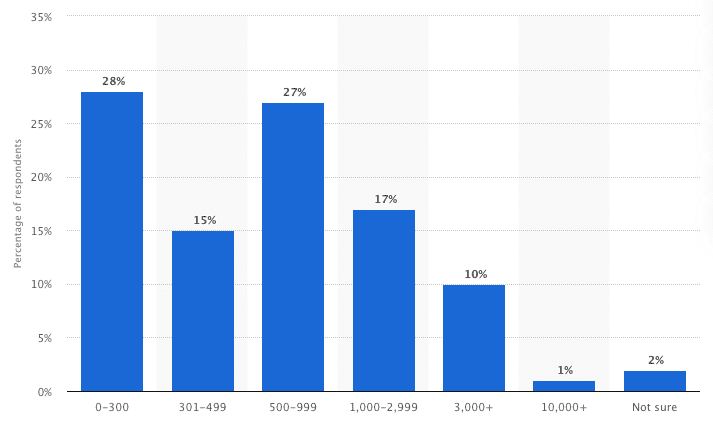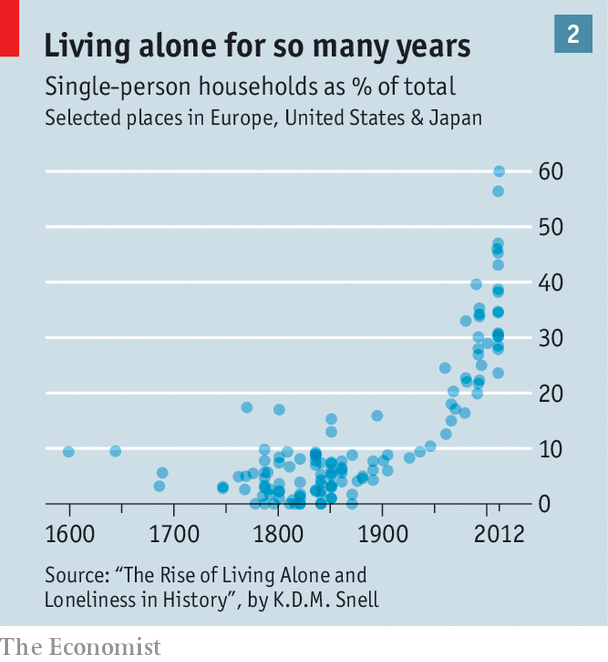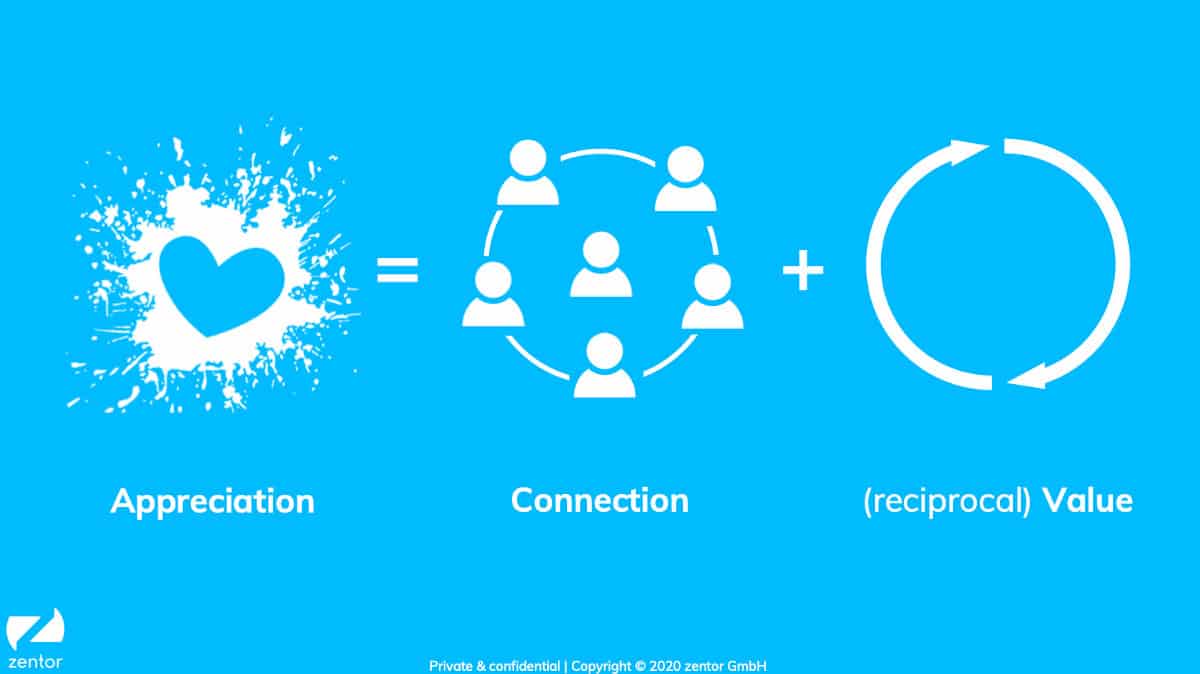What do digital networks mean for our human relationships – and what does this have to do with a fulfilling life?
How many ‘connections’ do you have on LinkedIn, Xing or Facebook? How large is your digital network over all WhatsApp groups? If your answer to those questions would astonishingly be ‘0’: Congratulations to your digital abstinence — and let me ask you a personal question: how did you achieve that?
A globally linked world
If we look at the other extreme: in a survey of LinkedIn by Statista 2016 more than half of the interviewed people said to have at least 500 first grade contacts. If you try to estimate an average value on the basis of the survey results, in purely arithmetical terms you will get well over 1,000 contacts A 2013 statistic mentions a number of below 400. That’s already a lot— but can you memorize the faces and first names of more than 1000 persons? I can’t.

(source: https://www.statista.com/statistics/264097/number-of-1st-level-connections-of-linkedin-users/)
This is how our globally connected and digitally enabled world now seems to function: Business contacts are kept on LinkedIn or Xing, private contacts on Facebook and Instagram (or for the non-digital dinosaurs: Snapchat, WeChat, TikTok), dating is done via Tinder, Parship. etc., messages come via WhatsApp & Co., news are found and shared via Twitter followers and new skills (meaningless and meaningful) are learned through YouTube channels. Thank god there is usually a name, a picture and short description under each profile.
unlinked
In spite of the masses of digital connections there are more and more lonely people existing. In Great Britain a study estimates that 14% of the population is feeling more and more lonely, which led 2018 to the creation of a ‘Minister of loneliness’—a difficult task as it seems, since Diana Barran is already the third representative in 2 years (after Mims Davies and Tracey Crouch). A study by Splendid Research estimates that in Germany 17% of the population feel lonely permanently or often. But loneliness not only leads to physical and psychic illness but increases indeed the mortality rate (Henriksen et. al, 2019).
It seems we’ve never been as ‘connected’ with so many people as we are today, but at the same time feel much less connected than ever before.

Meanwhile individualism has become a desirable objective and a social value. The poverty-enforced living close together of preindustrial times has turned into a striving for independence during the last century. We love our freedom, look for something that makes us unique and prefer not to be dependent on anybody – be it family, job, or leisure time. According to The Economist the percentage of single households in some developed countries is more than 50%, with rising tendency.
Real connections – class instead of mass
But what does the ‘mass’ of digital connections mean with regard to our connections to people and our striving for fulfillment? Why do digital connections which make it so easy for us to get into contact with people make us feel more lonely instead? It is actually quite simple: The quantity of digital connections can never substitute the quality of a real connection between people.
But what defines a ‘real’connection? As is so often the case with these abstract questions, there is no clear definition and one has to approach via detours — here are a few clues from various perspectives (without claiming to be complete):
- Philosophy: e.g. Aristotle described three forms of love(Eros = sexual love, Agape = divine L., Philia = friendly L.) and attached a special importance to the latter. The highest form of friendly Philia is based on mutual appreciation with ideally a common goal
- Biology: Binding is an innate drive of man and satisfies needs for safety, security and protection
- Psychology: From the binding behavior development psychologically arises our ability for human relationships; those need a unifying element as a basis and are based on reciprocity
- Happiness research: (non-digital) relationships with other people are a cornerstone of a fulfilling life and have a significant positive effect on mental and physical health
What do we derive from this? There is an evolutionary basis and human relationships are essential to our physical and psychological well-being. To build a relationship, we need some connecting element; to maintain a relationship reciprocity is needed. Apparently, we estimate the value of our relationships and are willing to give, but we expect to get back some form of ‘value’ in return, at least in the long term*. This is even reflected etymologically in a beautiful term: Appreciation, which derives from the Latin term appretiare (to set a price/value).
Appreciation is based on reciprocity and turns a connection into a ‘real’ relationship.
Appreciation is one of the three essential pillars of a fulfilling life in the zentor model, in addition to purpose and engagement. The relationship between connection, appreciation and reciprocity can be nicely presented in the following simplified definition: appreciation = connection + (reciprocal) value.

From this definition it can also easily be seen that our digital networks only provide a very weak (digital) basis for a feeling of connection and even less basis for a feeling of personal reciprocal value. The currency of digital likes, comments and considerations cannot be exchanged into the currency of a real interpersonal appreciation, however much we try. There is the short appeal and kick for digital thumbs — but the more we look for them (and maybe get them) the more hollow they feel. It’s like loading the shopping cart in the supermarket in the UK, feeling hungry and trying to pay with Euros at the checkout. We know something is missing, we feel it but still have difficulties to change it.
Go out and appreciate one another
And the morale of this story? Genuine interpersonal appreciation cannot be replaced by anything — and it does not hurt! On the contrary, what we need is a meaningful connection with people (a shared hobby, the same working place, maybe even a common goal) and already a simple positive confirmation can deeply satisfy people: ‘You do this well’, ‘I like to work with you’, … Sounds simple, it is — the biggest hurdle is the first step.
If you are still looking for a common goal or an exciting project that you want to start with like-minded people, we recommend an — appreciative — look into our zentor project platform. Maybe you’ll also find something for you?
If you have any comments or questions about the article, we look forward to hearing from you below.
* the equivalent can also be ‘repaid’ by someone else, e.g. in mentoring (wherein the equivalent can also be positive recognition) or by pay-it-forward approaches.
Sources:
- https://www.statista.com/statistics/264097/number-of-1st-level-connections-of-linkedin-users/
- https://alltop.com/viral/portrait-of-a-linkedin-user-infographic
- https://www.economist.com/international/2018/09/01/loneliness-is-a-serious-public-health-problem
- https://www.splendid-research.com/de/studie-einsamkeit.html
- https://time.com/5248016/tracey-crouch-uk-loneliness-minister/
- Henriksen, J., Larsen, E. R., Mattisson, C., & Andersson, N. W. (2019). Loneliness, health and mortality. Epidemiology and Psychiatric Sciences, 28(2), 234-239. https://doi.org/10.1017/S2045796017000580